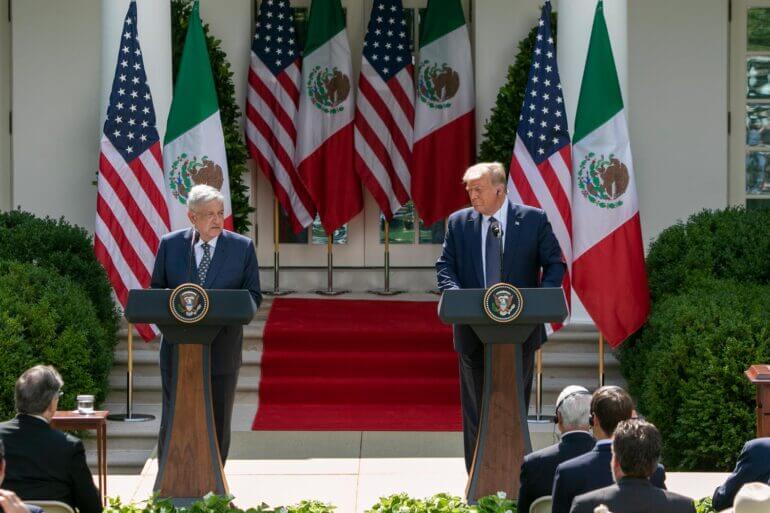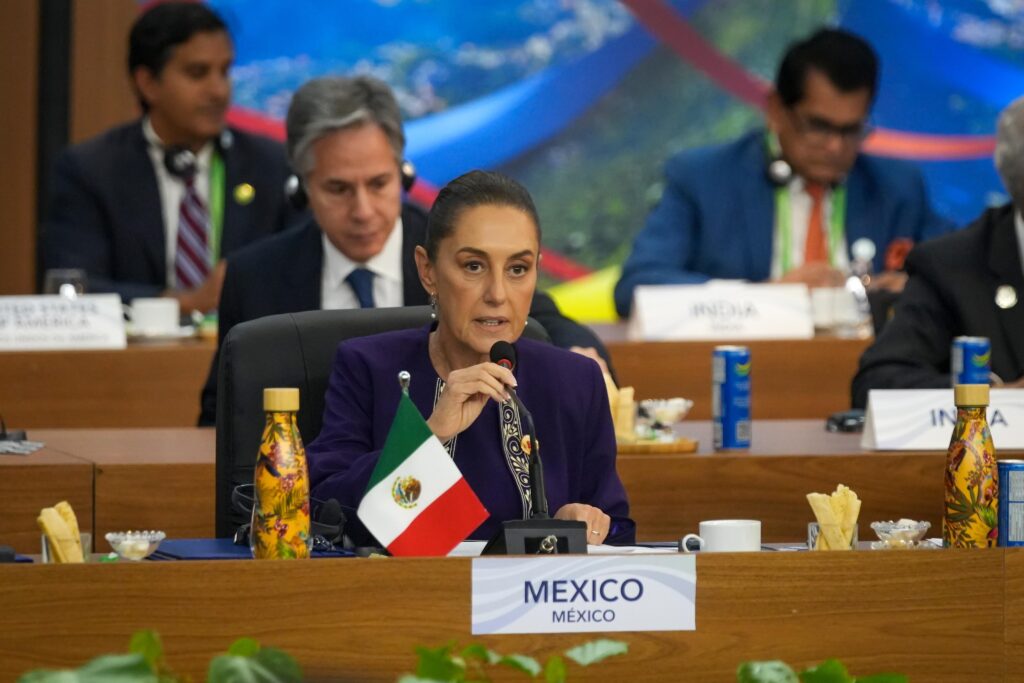Mexico City, Mexico — In the early hours of Monday, June 3, Claudia Sheinbaum, the former mayor of Mexico City, became Mexico’s first female president in its 200-year history.
“I will not fail you, today we have made possible the continuity and progress of the fourth transformation, and for the first time in 200 years that women reach the presidency of the Republic,” Sheinbaum told supporters who had gathered in the early morning hours in Mexico City’s main square, Zócalo.
Her remarks, which mentioned a “fourth transformation,” echoed the political platform of Sheinbaum’s mentor and predecessor, outgoing President Andrés Manuel López Obrador.
Many are calling Sheinbaum’s victory — one of the most dominant in Mexico’s history — an approval of the political party López Obrador founded over a decade ago, the National Regeneration Movement (MORENA).
The elections, the largest in Mexico’s history in terms of the sheer number of disputed offices (over 20,000), were a resounding success for MORENA.
Image credit: Mexico’s National Electoral Institute (INE)
Initial results suggest that MORENA won governor seats in six of nine contested states, including the powerful Mexico City governorship.
MORENA also saw landslide victories in the National Congress and Senate. According to the Quick Count conducted by the National Electoral Institute (INE), MORENA and its allies, the Green Party and the Labor Party, would count for 346 of the 500 seats in the lower house and 76 of the 128 seats in the Senate, paving the way for Sheinbaum’s administration to potentially enact legislation — including controversial constitutional reforms — that had eluded her predecessor, who didn’t enjoy the same majority of allies in Congress.
A polarizing figure, MORENA’s founder, López Obrador, has been lauded by some for transforming Mexico’s politics, which were controlled for decades by the Institutional Revolutionary Party (PRI). At the same time, he’s been criticized for verbal attacks on the press, his inability to improve Mexico’s still dire security situation, and his desire to make sweeping constitutional reforms.
MORENA’s success in yesterday’s elections could allow his successor, Sheinbaum, to proceed with “Plan C,” a series of constitutional reforms he was unable to pass during his term.
Among the initiatives that failed to pass are reforms to Mexico’s electoral system, bringing the civilian National Guard under control of the military, and electing Supreme Court justices by popular vote.
For MORENA’s political rivals, 2024 was not a good year. MORENA gobbled up more control in central Mexico, winning governorships in Morelos, Puebla, and Mexico City. And in the southeast, the ruling party candidates won governorships in Veracruz, Tabasco, and Yucatan — a state previously dominated by the conservative National Action Party (PAN), considered MORENA’s strongest opponent.
The PAN will go from five to four governorships, winning contests in Aguascalientes, Chihuahua, Guanajuato, and Querétaro, and Citizens’ Movement managed to hold on to its control over Jalisco and Nuevo Leon. The PRI will hold onto control of Coahuila and Durango, which did not have governorships up for elections this year.








